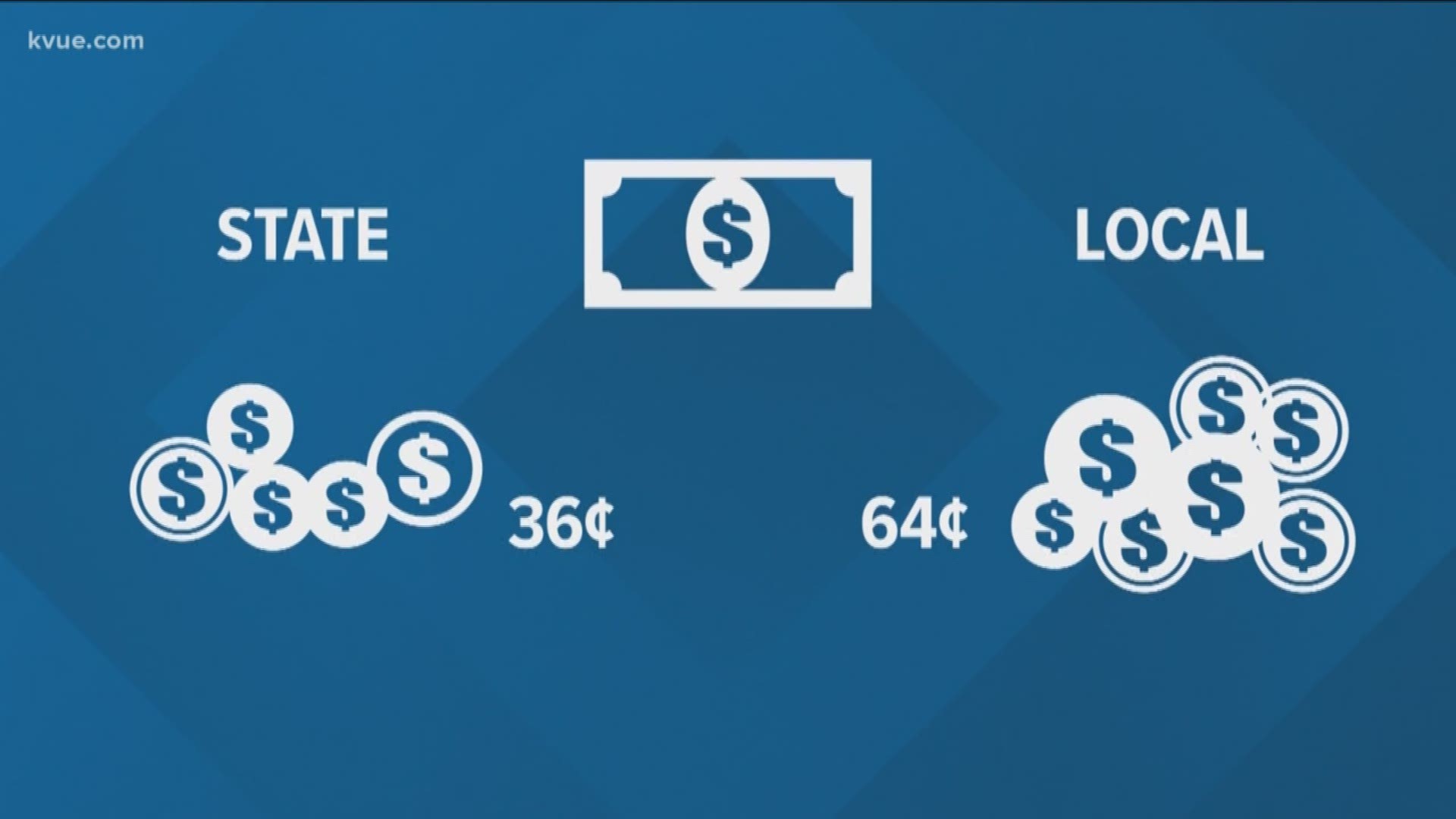AUSTIN, Texas — You've heard it over and over again: Texas lawmakers say this legislative session they are going to fix the school finance system.
A new report from Texas Comptroller Glenn Hegar dives into what it will take to address the problem.
The special edition of Fiscal Notes focuses solely on school finance.
The report points out that nearly everyone agrees the formulas Texas uses to fund schools is broken. In fact, in 2016, the Texas Supreme Court ruled the system "meets minimum constitutional requirements" but needs "transformational, top-to-bottom reforms."
Hegar explains school finance like this:
X+Y=Z
X is local revenue, your property tax dollars. Y is what the state puts in. And Z is the total amount needed to fund schools.
When calculating how much the state should pay, the formulas count X, your property tax dollars, first.
Just take a look at your property tax bill and you'll see you're paying more taxes to the school district each year, not because the tax rate has really changed but because your property values keep increasing.
So as the X number grows, what the state puts in decreases.
One of the biggest takeaways from the report is that Hegar found in 2018 homeowners and businesses footed 64 percent of the cost for public education.
Think about it this way, for every dollar it takes to educate a child, the state puts in 36 cents while you pay 64 cents.
A few other big takeaways from the report include the fact that the current school finance formulas don't factor in any inflation for school districts even though things cost more.
The report also states recapture, the process of taking tax dollars from property-rich districts and giving it to poorer districts, is causing more districts to lose money. Austin ISD suffers from this the most.
Lastly, the report states any significant change will require changing the formulas.
And that's what your lawmakers say they will do this session.
One other point; while we talk about this in terms of what the state pays versus what homeowners pay, don't forget, it's pretty much all your money. The state gets revenue from sales tax and oil and gas taxes.
And how your money's spent matters.

